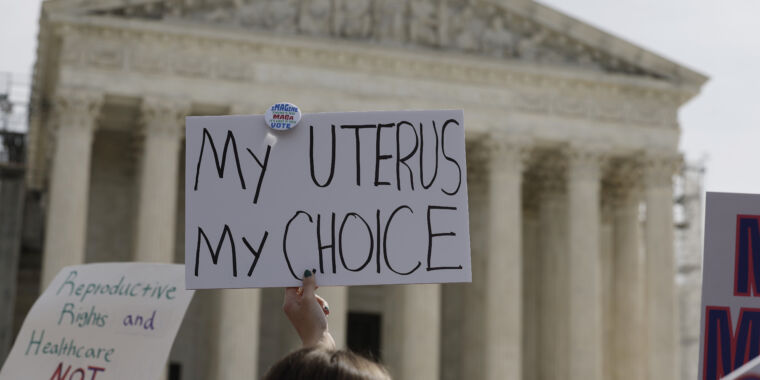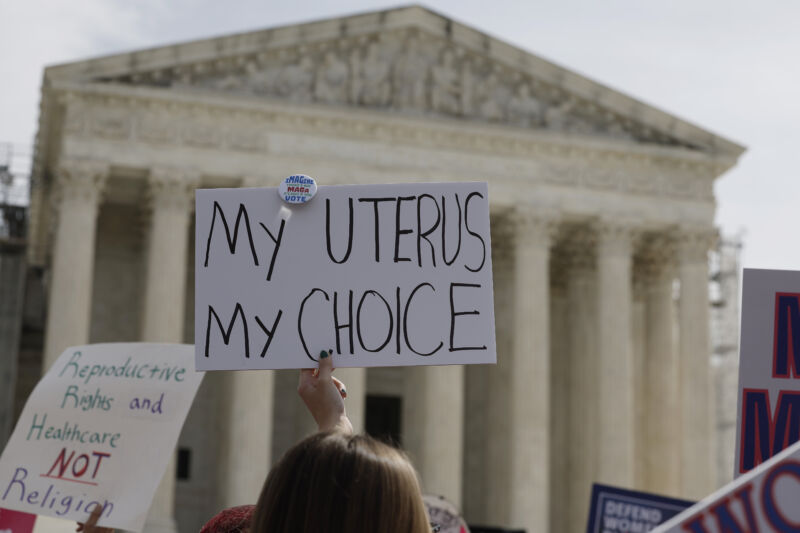SCOTUS mifepristone case: Justices focus on anti-abortion groups’ legal standing

[ad_1]

The US Supreme Court on Tuesday heard arguments in a case seeking to limit access to the abortion and miscarriage drug mifepristone, with a majority of justices expressing skepticism that the anti-abortion groups that brought the case have the legal standing to do so.
The case threatens to dramatically alter access to a drug that has been safely used for decades and, according to the Guttmacher Institute, was used in 63 percent of abortions documented in the health care system in 2023. But, it also has sweeping implications for the Food and Drug Administration’s authority over drugs, marking the first time that courts have second-guessed the agency’s expert scientific analysis and moved to restrict access to an FDA-approved drug.
As such, the case has rattled health experts, reproductive health care advocates, the FDA, and the pharmaceutical industry alike. But, based on the line of questioning in today’s oral arguments, they have reason to breathe a sigh of relief.
Standing
The case was initially filed in 2022 by a group of anti-abortion organizations led by the Alliance for Hippocratic Medicine. They collectively claimed that the FDA’s approval of mifepristone in 2000 was unlawful, as were FDA actions in 2016 and 2021 that eased access to the drug, allowing for it to be prescribed via telemedicine and dispensed through the mail. The anti-abortion groups justified bringing the lawsuit by claiming that the doctors in their ranks are harmed by the FDA’s actions because they are forced to treat girls and women seeking emergency medical care after taking mifepristone and experiencing complications.
The FDA and numerous medical organizations have emphatically noted that mifepristone is extremely safe and the complications the lawsuit references are exceedingly rare. Serious side effects occur in less than 1 percent of patients, and major adverse events, including infection, blood loss, or hospitalization, occur in less than 0.3 percent, according to the American College of Obstetricians and Gynecologists. Deaths are almost non-existent.
Still, a conservative federal judge in Texas sided with the anti-abortion groups last year, revoking the FDA’s 2000 approval. A conservative panel of judges for the Court of Appeals for the 5th Circuit in New Orleans then partially overturned the ruling, undoing the lower court’s ruling on the 2000 approval, allowing the FDA’s approval to stand, but still finding the FDA’s 2016 and 2021 actions unlawful. The ruling was frozen until the Supreme Court weighed in.
Today, many of the Supreme Court Justices went back to the very beginning: the claimed scenario that the plaintiff doctors have been or will imminently be harmed by the FDA’s actions. At the outset of the hearings, Solicitor General Elizabeth Prelogar argued that the plaintiffs had not been harmed, and, even if they were, they already had federal protections and recourse. Any doctor who consciously objects to caring for a patient who has had an abortion already has federal protections that prevent them from being forced to provide that care, Prelogar argued. As such, hospitals have legal obligations and have set up contingency and staffing plans to prevent violating those doctors’ federal conscious objection protections.
[ad_2]
Source link














